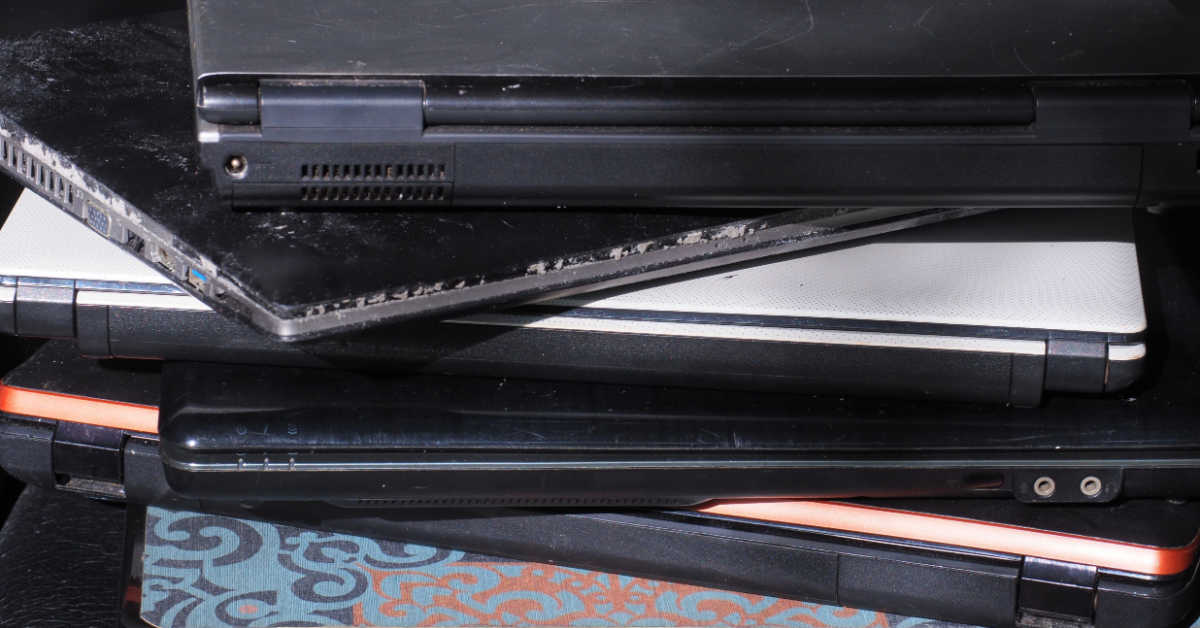One Person's Trash Is Another's 'trashware' – The Art Of Refurbing Old Computers

Devconf.cz Uplifting positivity is not why The Reg FOSS desk went to Red Hat's Devconf.cz conference – but that's what we found.
Andrea Perotti is a Platform Technical Account Manager for Red Hat in Milan, but in his spare time he's involved in running an Italian volunteer organization called PCOfficina, repurposing surplus IT equipment to help needy people.
At Devconf, he presented a talk entitled "Change the world one PC at a time with trashware" and it was the single most inspiring panel we visited while we were at the event.
"Trashware" is a new term to us, at least as a positive thing; we aren't sure if it's an Italian neologism, but the only relevant definition we found was on the Simple English Wikipedia. The concept differs from retro computing, inasmuch as the idea is that end-of-life surplus kit can be inexpensively refurbished to run modern operating systems and software, and have a new lease of life bringing computer knowledge and all-important internet access to people who may not be able to afford to buy themselves new computers. "Our goal is to use them, not to demonstrate that Linux can run on them," as Perotti put it.
His talk focused on the practicalities of putting together such an organization. For example, he stressed the importance of having a formally constituted organization – even if it's a nonprofit. Many companies have rules in place that prevent them from simply giving away their old computers, but they can donate them to another organization.
PCOfficina sets what might seem like some quite high bars for the equipment that it refurbishes and issues. Its minimum spec is a Core i3 processor or equivalent, eight gigs of ram, and a 128GB SATA drive – ideally an SSD. Over time, the group has ruled out several whole categories of equipment. In 2015, it banned the Pentium 4 as it was too hot and too slow. In 2018, it banned IDE hard disks. In 2020, it ruled out 32-bit equipment as mainstream software was dropping support for it. In 2022, it stopped offering machinery that needed DDR2 memory; it simply isn't affordable to upgrade machines to more than four gigs of such an old form of RAM. That in turn meant saying goodbye to most Core 2 Duo PCs.
Pragmatically, it recommends the Xfce edition of Linux Mint 21 for its relatively modest hardware requirements but long support life-cycle. (We didn't expect to hear Linux Mint being advocated at a Red Hat Event, but we admire their pragmatic approach.) Salient characteristics included looking good, which is important to appeal to non-technical folks, as well as the ability to do all administration from a point-and-click GUI, the easy installation of third-party drivers and apps – even if proprietary – and a long update cycle, so the machines will continue to receive security updates for years to come. Good documentation and an active user community are also important. An interesting aspect that Perotti called out is one that we hadn't heard about previously: that Ubuntu's Snap packages perform poorly on a system using a spinning hard disk drive.
- Europe's right-to-repair law asks hardware makers for fixes for up to 10 years
- Second-hand and refurbished phone market takes flight amid inflation hike
- Junk cellphones on Earth would stack higher than the International Space Station
- Refurb your enthusiasm: Apple is selling an 8-year-old desktop for over £5k
The organization isn't dogmatic, though, and for some of its clients it also provides Microsoft Windows – subject to the availability of proper licenses. Perotti took care to emphasize the vital importance of properly licensed software: they're not in the business of encouraging piracy.
There are of course organizations with similar objectives in multiple countries, including charities such as Computer Aid International, to which this vulture has arranged the donation of quite a lot of kit in the past. What we found interesting about this talk was the angle of how to start such a such a thing yourself, and some of the less obvious considerations that might slip your mind if you're thinking about it. There is some useful info in the slide deck [PDF]. It seems to us like the sort of project that a lot of local maker and hacker spaces could usefully do. ®
Bootnote
The Devconf events are small, free, technically focused conferences that Red Hat sponsors in the Czech Republic, the United States, and most recently in India. This year's Brno event coincided with The Reg FOSS desk's summer holidays, so we decided to drop in. Since the start of the pandemic, the events have been hybrid, and you can tune in and watch – and discuss what's happening on Matrix – from anywhere in the world.
From Chip War To Cloud War: The Next Frontier In Global Tech Competition
The global chip war, characterized by intense competition among nations and corporations for supremacy in semiconductor ... Read more
The High Stakes Of Tech Regulation: Security Risks And Market Dynamics
The influence of tech giants in the global economy continues to grow, raising crucial questions about how to balance sec... Read more
The Tyranny Of Instagram Interiors: Why It's Time To Break Free From Algorithm-Driven Aesthetics
Instagram has become a dominant force in shaping interior design trends, offering a seemingly endless stream of inspirat... Read more
The Data Crunch In AI: Strategies For Sustainability
Exploring solutions to the imminent exhaustion of internet data for AI training.As the artificial intelligence (AI) indu... Read more
Google Abandons Four-Year Effort To Remove Cookies From Chrome Browser
After four years of dedicated effort, Google has decided to abandon its plan to remove third-party cookies from its Chro... Read more
LinkedIn Embraces AI And Gamification To Drive User Engagement And Revenue
In an effort to tackle slowing revenue growth and enhance user engagement, LinkedIn is turning to artificial intelligenc... Read more

